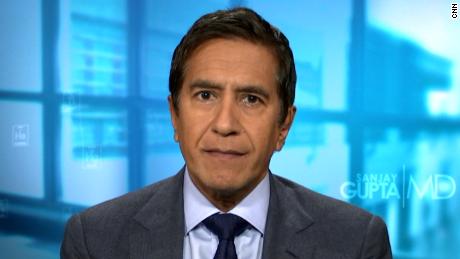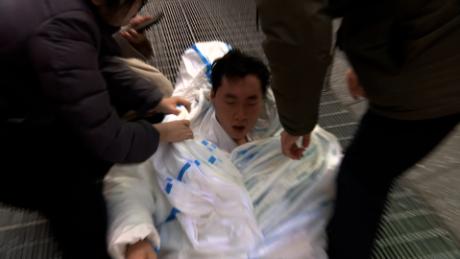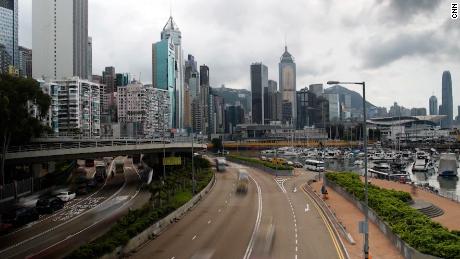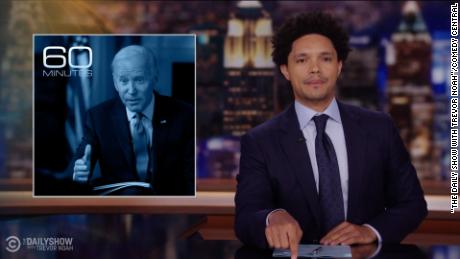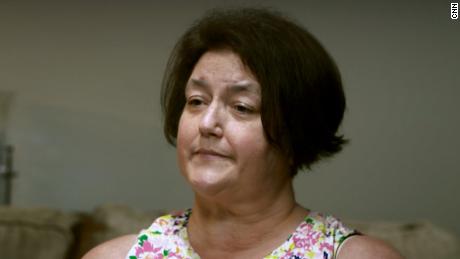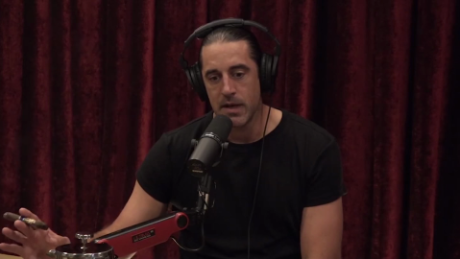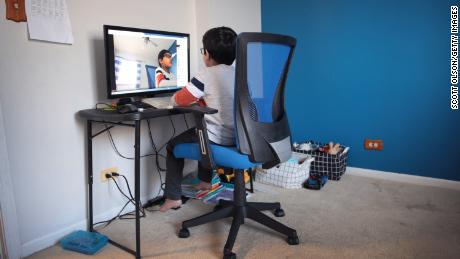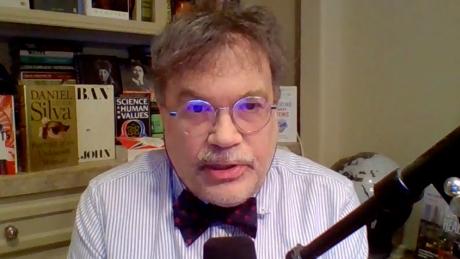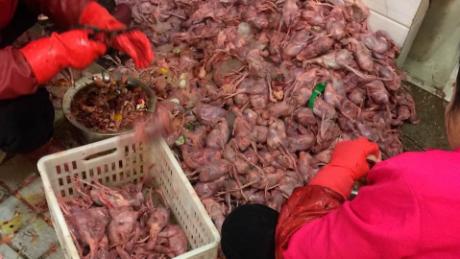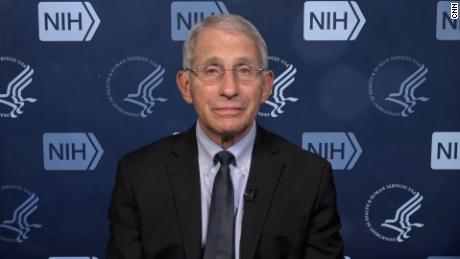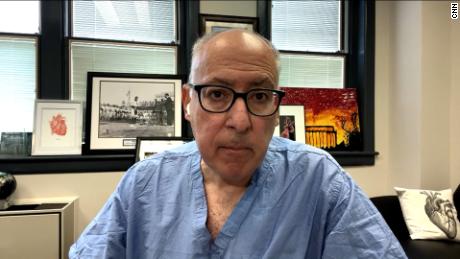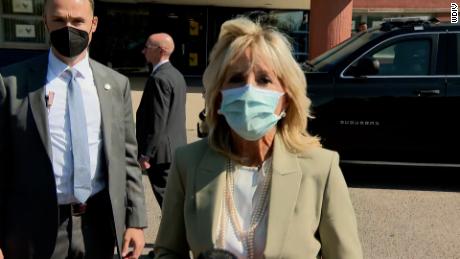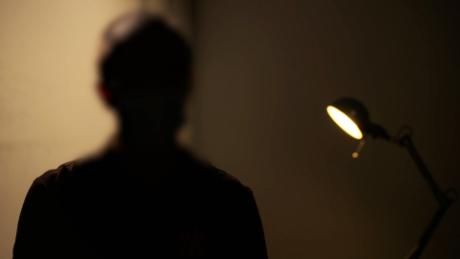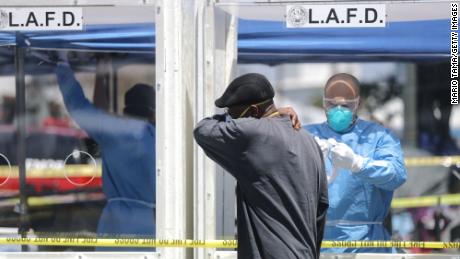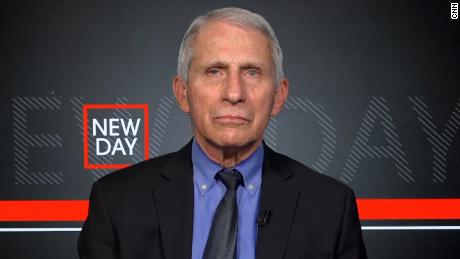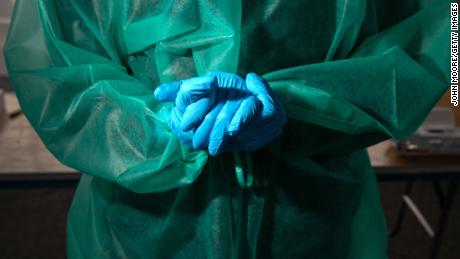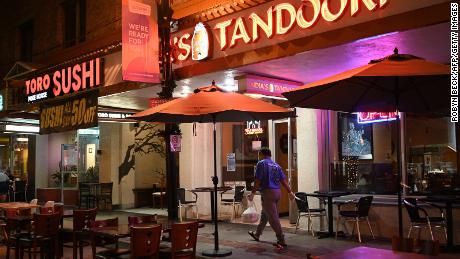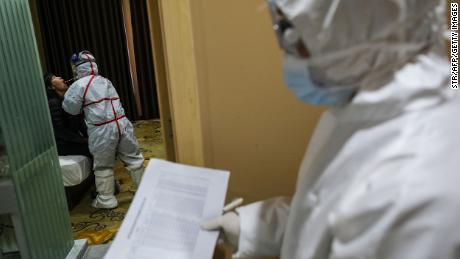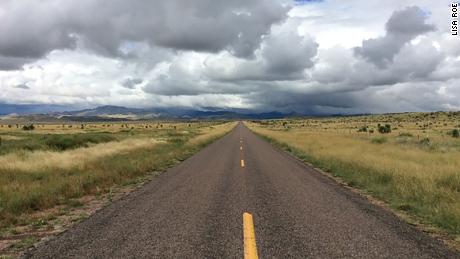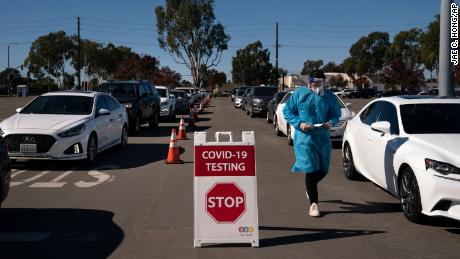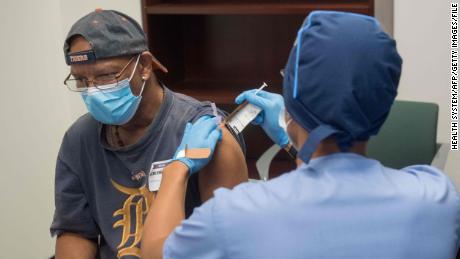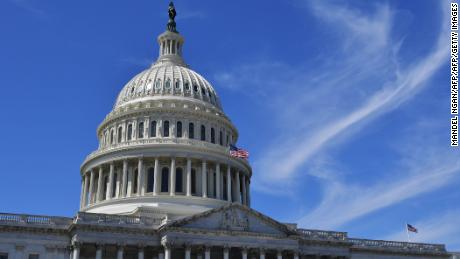(CNN)As the crush of incoming Covid-19 patients continues to strain hospitals across the US, officials across several states are worried their hospitals will be overwhelmed as the holiday season approaches.
A record-high 96,039 Covid-19 patients were hospitalized in the US as of Monday evening, according to the Covid Tracking Project.
California Gov. Gavin Newsom on Monday told reporters that the intensive care unit bed capacity in the state might reach 112% by Christmas Eve, if the trend of surging coronavirus cases continues.
In Rhode Island, officials prepared to use field hospitals after telling residents their systems were already at capacity.
In New York, where some hospitals saw room capacity taxed in March, Gov. Andrew Cuomo said this time medical systems need to take steps to move patients to the other facilities that have space.
"No patient wants to be in an overwhelmed hospital, because you're getting less care, the staff is stretched thin, it's in the patient's best interest, distribute the patient load over the system," Cuomo said Monday.
"We're not going to live through the nightmare of overwhelmed hospitals again."
Cuomo said hospitals need to prepare to staff emergency field facilities and confirm they have 90 days of personal protective equipment.
Ken Raske, the president of Greater New York Hospital Association, said hospital systems learned several lessons from the first wave of Covid-19 cases.
He assured the governor at Monday's news conference that New Yorkers are in good hands.
"I'm confident sir," he said, "based on what I've seen and what our hospitals are experiencing currently, that our ability to cope with this is going to be a total team effort as it has been and our ability to respond to the needs of the public including all their healthcare needs will be assured by the kind of plan you just outlined."
In California, Newsom said he was considering a new stay-at-home order. He recently instituted a monthlong curfew -- 10 p.m to 5 a.m. -- on nonessential activities in most counties.
At the current rate of new infections, hospitalizations could double or triple within the next month if there are no major changes, Newsom told reporters.
The number of patients needing intensive care will surpass capacity by mid-December, he said. Total hospitalizations statewide could reach 78% by Christmas Eve.
"If these trends continue, we're going to have to take much more dramatic, arguably drastic action," he said, referring to the rising number of cases and a potential stay-at-home order.
California was the first state to implement a stay-at-home order in March, during which only essential employees were permitted to travel.
'Our health care system is literally at the breaking point, Rhode Island doctor says
Many US hospitals are already at capacity.
In Rhode Island, residents received an alarming public safety warning on their phones Monday:
"Hospitals at capacity due to COVID," the alert from the governor's office said.
"Help the frontline by staying home as much as possible for the next two weeks. Work remotely if you can, avoid social gatherings, get tested. If we all decrease our mobility, we will save lives."
The state has put together two field hospitals, one of which will start taking patients Monday, said Audrey Lucas, press secretary for Gov. Gina Raimondo.
The other field hospital could start taking patients as early as this week.
But field hospitals won't solve the crisis if they run out of health care workers, said Dr. Megan Ranney, director of the Brown-Lifespan Center for Digital Health at Brown University.
"Even if you open a field hospital, if you have hundreds of staff who are sick -- which is what many states across the country are currently facing -- if you don't have nurses and doctors and respiratory techs, even a field hospital isn't going to save you," Ranney said.
"Our health care system is literally at the breaking point right now, thanks to Covid-19."
In West Virginia, state officials told hospitals to prepare to delay elective surgeries as the Covid-19 numbers surge.
"Look at not doing the kinds of surgeries that can be put off," state Health and Human Services Secretary Bill Crouch said Monday.
Crouch said he expects the voluntary delay on surgeries to last 45 days.
West Virginia's Covid-19 czar, Dr. Clay Marsh, gave this sobering assessment: "Perhaps the worst days are ahead of us."
Birx wants Thanksgiving travelers to get tested
With more than 1 million travelers dispersing across the country in one day, health experts are asking those who gathered with people outside their households over Thanksgiving week to get tested for Covid-19.
Sunday marked the busiest US air travel day since the coronavirus pandemic began. And that means countless travelers could be carrying the virus home and infecting others unknowingly.
"If your family traveled, you have to assume that you were exposed and you became infected," White House coronavirus task force coordinator Dr. Deborah Birx told CBS on Sunday.
She also recommended those older than 65 get tested immediately if they develop any symptoms.
"If you're over 65 or you have comorbidities and you gathered at Thanksgiving -- if you develop any symptoms, you need to be tested immediately," Birx said.
November has been a month of unprecedented Covid-19 surge. More than 30% of all cases ever reported in the US happened just this month, according to data from Johns Hopkins University.
Testing has also increased, but not at the same pace as new cases. About 23% of all Covid-19 tests were performed in November, according to the Covid Tracking Project.
Now the big concern is overwhelmed hospitals -- which inevitably leads to more deaths.
"There's no way that the hospitals can be fully prepared for what we're currently facing," Ranney said.
"This is like a natural disaster occurring in all 50 states at the same time. There are not adequate beds. There are not adequate staff. And because of the lack of national preparation, there are still not adequate supplies."
And that's before any Thanksgiving-related infections and hospitalizations, which won't be known for days or weeks.
Statistics reported in the days after the holiday might show a relative dip in Covid-19 cases, followed by a surge due to a lag in government agencies' reporting over the long weekend.
And given coronavirus' lengthy incubation time and how long it takes an infected person to test positive, cases related to Thanksgiving are unlikely to show in public data until the first full week of December at the earliest.
"When you look at people who are hospitalized today, they were infected two weeks ago, maybe more," said Dr. Jonathan Reiner, a professor of medicine at George Washington University.
"And then it takes usually another week for folks to succumb to the illness."
(More) good news on the vaccine front
Health experts are asking the public to hunker down for just a few more months, until a vaccine becomes publicly available.
Moderna said it plans to apply Monday for emergency use authorization (EUA) of its Covid-19 vaccine.
The company will ask the US Food and Drug Administration to review expanded data showing the vaccine is 94.1% effective at preventing Covid-19 and 100% effective at preventing severe cases of the disease.
"This is striking," said Dr. Paul Offit, a member of the FDA's vaccine advisory committee. "These are amazing data."
Moderna's application will be the second emergency authorization request for a coronavirus vaccine. Pfizer/BioNTech applied on November 20, with data showing similarly high efficacy.
An FDA advisory committee is scheduled to meet December 10 to discuss the Pfizer/BioNTech vaccine, and on December 17 to discuss the Moderna vaccine.
If all goes well, "we could be seeing both of these vaccines out and getting into people's arms before Christmas," US Health and Human Services Secretary Alex Azar told "CBS This Morning" on Monday.
Lt. Gen. Paul Ostrowski, director of supply, production and distribution for Operation Warp Speed, said he expects "a hundred percent of Americans that want the vaccine will have had the vaccine" by June.
"We will have over 300 million doses available to the American public well before then," Ostrowski told MSNBC.


